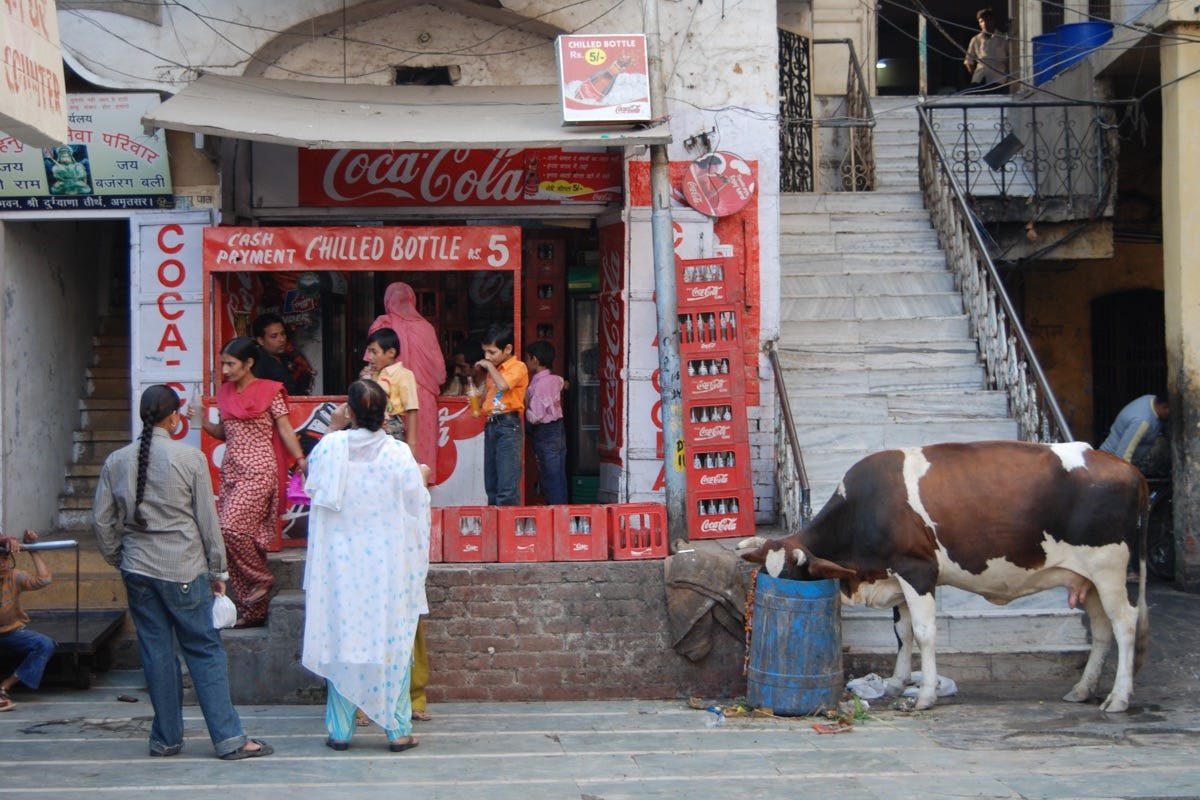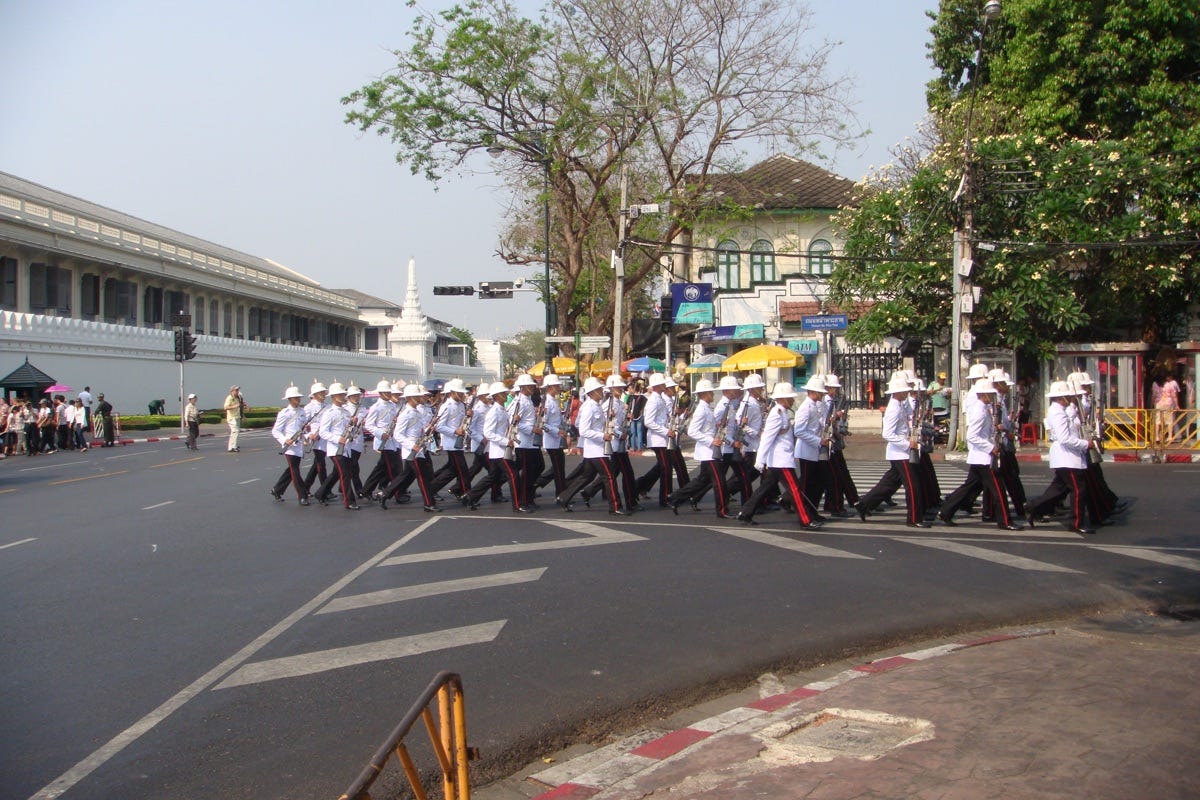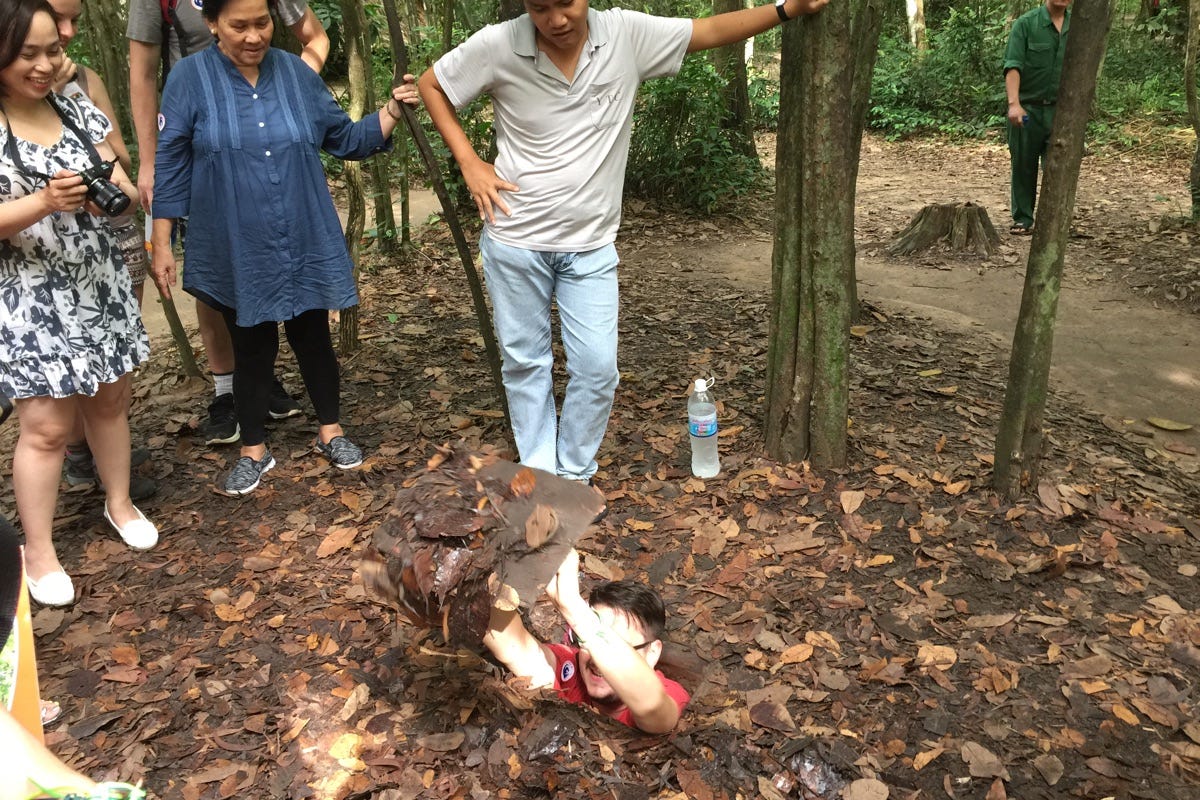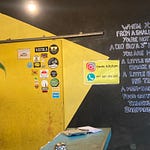At the moment I’m reading a novel by British journalist Monisha Rajesh titled Around India in 80 Trains. It traces her journey through the country, much of it with a profoundly irritating companion. Her companion though isn’t the sole irritant.
On a train in Rajasthan, Rajesh recounts a meeting with “a younger version of Neil from The Young Ones.” Neil, it should be said, could easily be me—I circumnavigated much of the country by train in the early 1990s—like Neil, slumming it in the cheapest seats. Why? I was seeking to experience the “real India.” To anyone I shared a car with back then, I apologise for my tediousness.
This wasn’t the India I fixated on. Photo: Cindy Fan.
Chatting about the train classes one should travel by while in India, after noting he only travels in general class, Neil says:
“... That way you actually get to see the real India,” then, “Yeah, you don’t get to see what real India is like if you travel up in the air-conditioned classes. You can’t sit and talk to real people or understand how they live.” He then finishes with, “They’re not the ones who define India. It’s the poor who make this country what it is.”
Boy, did I ever feel seen when I read this exchange. To be fair, I was 22 and beyond clueless, but yeah, I was once Neil. The question is, putting Neil to the side, what does define a country?
My image was more something like this. Photo: Cindy Fan.
Of course, there’s no one segment of a population that does. The definition comes from its history, culture, environment, and many other factors—including its people. That definition then gets interpreted in as many different ways as the factors that form it. Everyone has their own take on what that definition means to them.
So, if one is looking to gain even a limited understanding of any social aspect of a country, what should one do? Of course, one can throw themselves out into the world and see what meaning they can shake out. Many though, opt for a tour, yet, looking at what is on offer, you’d think many of the tours were designed by Neil.
If you’re looking for a tour that offers insight into how people live day to day, the tours almost invariably focus on one segment. The poor—Neil’s people. It is important to emphasise “people” here. As travel writer Tim Bewer points out on Twitter, “There are mansions galore turned into tourist attractions, including some where people still reside there.” He’s correct, I’ve visited Bangkok’s Grand Palace more times than I remember, and hundreds of tours go there. I’d argue though, that in these cases you’re often presented with a shell, a walk-through postcard, without people living it.
What about a tour to where they live? Photo: David Luekens.
Who hasn’t done a tour of a lived-in palace or mansion only to find half the property roped off? This isn’t the case though with a tour through say a poor community in Bangkok. More often than not, in these cases, access is about as comprehensive as it gets. There is often, after all, only one room.
So the wealthy might offer you a glimpse of opulent living, but their privacy is well-guarded. The poor, not so much.
This tourism, where one gets to poke around the lives of those less well off, is poverty/slum tourism. The ickiness of ogling the poor I’ll leave for another post, but it centres on Neil’s belief that an understanding of a country comes from its poor. Why do people think this?
Should tourism be restricted to the highway up top? Photo: Stuart McDonald.
If I think back to 20-something me, wedged into a Bangalore-bound train, it was down to my preconceptions. The country was full of poor people. These poor people, unadulterated by Western influences and technology, held their traditions close. As my friend Kate points out on Twitter, often their financial situation gives them no other choice. The affluent, well to my thinking, they were all tainted, they weren’t “real India.” I wanted authenticity—a whole other glad bag of tourism woe and contradiction I am not going to get sucked into here.
Following this logic, it is from the poor I should soak up my cultural understandings. There was also plenty of seeing how these people were living made me all the more thankful for what I had. Offering the poor as a cultural salve to make one feel better about oneself is less than ideal. Everyone was 22 once, right?
The thing is like I said up top, there is all manner of factors that flow into defining a nation. One of these is the wealthy. For better or worse, wealthy celebrities and magnates provide models that others, often of lesser means, seek to emulate. Sure, plenty of these may be foreign, but there’s no shortage on the local front. These people are responsible for more shaping of popular culture—going forward—than any other demographic.
Want to eat where many Thais eat? Go to McDonalds. Photo: Stuart McDonald.
Yet tourists, by and large, are not so interested in the “going forward” bit. Tourism is largely a backwards-facing industry. The image a tourist forms in their mind of a place they’ve never been is the product of decades of often subconscious learning—dare I say indoctrination. When they arrive, many tours and other services work off and amplify this.
Who hasn’t done a tour to Cu Chi in southern Vietnam only to find their 23-year-old Vietnamese guide speaking with a Texan twang? Why are there farming tours but no banking tours in Bali? You have both farms and banks in your country right? Why is one interesting but the other not? How much is poverty and an unadulterated, non-mechanised life, both more in line with the tourists’ preconceptions, the real draw?
Who wants to do a tour that spends the entire time turning guests’ preconceived ideas on their heads? A good tour should do this, it should challenge participants’ ill-founded beliefs. Yet, why are there so few tours to the houses of middle-class Bangkokians who work as bankers, stockbrokers or nurses? Yes, people have these jobs in their own countries too, but life—and culture—is more than one’s day job. Why are these people somehow less interesting? Why are we even doing tours into anyone’s lives?
I can hear the Texan twang as I type. Photo: Cindy Fan.
I’ve done plenty of ill-considered tours. I’ve gawked inside people’s houses, at what they were eating, at their walls held together with tape. I’d be lying if I said I didn’t learn a thing or two, but I’m not sure I needed to—at least not in that fashion.
And this is an important point. Not all tours and organisations are equal. Some do a better job than others. Some do involve—or are run by—the communities they feature, in better, more progressive and inclusive ways. The middle-class and high-end though, not so much. Instead, tourists end up with their poverty preconceptions largely unchallenged as they’re often not exposed to anything else in any meaningful way—other than walking past it on the street.
I’d love to do a tour of some fancy-pants restaurant full of guests. Well, not really, this is more of a fever dream. In said dream, the restaurant is packed with clientele who earn more in a minute than I will in my lifetime. I’d like to lean over their table and have them answer my inane questions about the challenges of being loaded, a silver spoon halfway to their mouth. I’d like to ask them if that $28,000 bottle of wine is worth it. And you know what? If they didn’t offer me a glass of it to taste it for myself, I’d ask, because, in poorer communities, they offer before you even have time to ask.
Couchfish is 100 per cent independent and reader-supported. If you’re not already a subscriber, and you’d like to show your support, become a paying subscriber today for just US$7 per month—you can find out more about Couchfish here—or simply share this story with a friend.
Don’t forget, you can find the free podcasts on Apple, Pocket Casts and Spotify as well as right here on Couchfish.
















